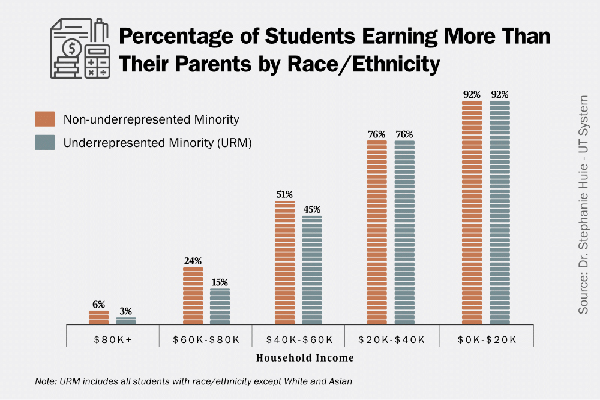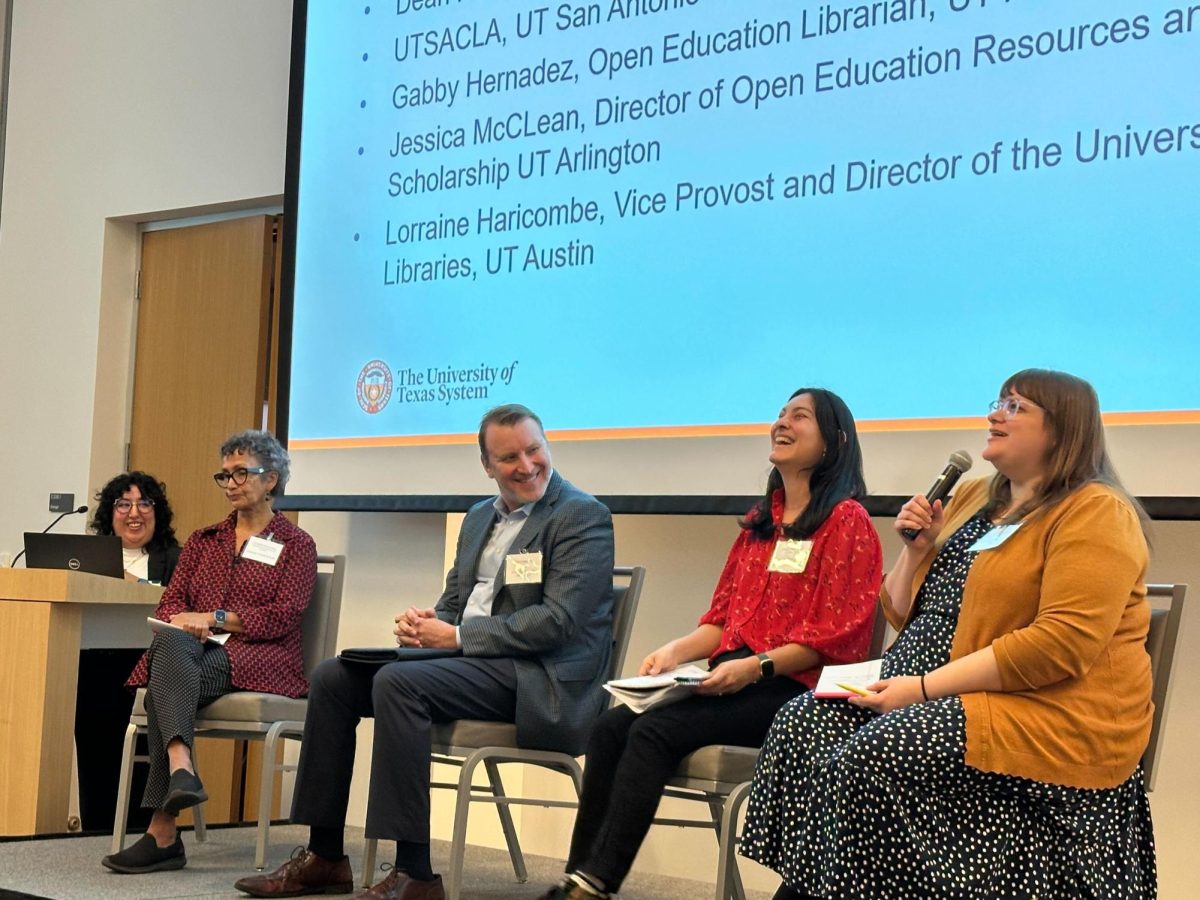Hispanics, blacks and other minorities in the UT System are less likely to exceed their parents’ income than their white and Asian peers five years post-graduation, according to a UT System study published in January.
The study compared parental household income to an individual’s earnings five years post-graduation. The study showed college graduates are more likely to make more money than their parents within five years. However, this statistic varies on race and ethnicity.
The racial disparity likely exists due to societal workplace factors, which are not entirely in the System’s control, said Rebecca Karoff, associate vice chancellor for UT System’s Academic Affairs.
“I know that there is a disturbing aspect of the (racial disparity), but I don’t think that’s a function of what we’re doing in the UT system,” Karoff said. “As our undergraduate students become more diverse, I think we’re going to really see some of these gaps being closed.”
Stephanie Huie, vice chancellor for the UT System’s Office of Institutional Research and Analysis, said she believed the income disparity was due to majors. She referred to a previous study that showed blacks and Hispanics are less likely to pursue higher-earning majors, such as STEM and business.
However, Huie said she still believes in the power of higher education.
“The fact that you have so many students who are making double what their families were making five years out really shows the value of that higher-ed degree,” Huie said.
International business sophomore Ricardo Lefranc Pierantozzi, who identifies as Hispanic, said members of the Latino community are less likely to pursue higher-earning majors because of the lack of opportunity in Latino-majority public schools.
“I think that the objective for many is to earn a living and earn a job to start a family,” Pierantozzi said.
Pierantozzi said the University should work on classroom inclusion.
“In the classes that I’m in, I just feel like there is a disconnect between races,” Pierantozzi said. “Whenever I’m in class, I feel like the odd one out.”
The University is doing its best, but the programs make results happen, said Ruben Cantu, executive director of the Office of Inclusive Innovation and Entrepreneurship.
“We’re going to put our heads down and put a lot of work in to improve ourselves,” Cantu said. “I think that if we all show up either internally or externally, the community is going to realize that this is a good investment.”





















